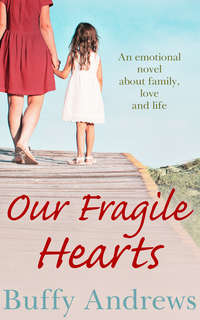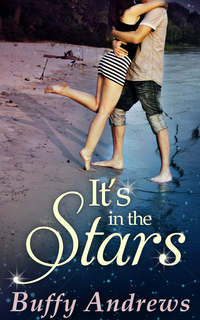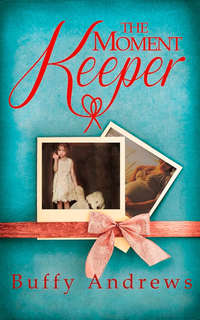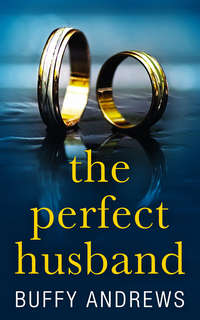
Полная версия
The Christmas Violin
She touched the letters on the box – a blue “l,” red “i,” yellow “f” and green “e.” It occurred to her that Life’s packaging had changed over the years. It maintained the same color scheme of blue, red, yellow, orange and green, but there were tiny changes that Willow figured most people never noticed. Like the letters weren’t always the same color and sometimes the dot above the “i” was a circle and sometimes it was a square. And sometimes the “l” was capitalized and sometimes it wasn’t. Funny, she thought, that despite changes in packaging, the cereal remained the same at its core – same color scheme, same taste, same Life. She hated when she had these metaphorical moments that led to too much thinking. And she hated that she noticed such details; it was her blessing and her curse.
The tea kettle whistled, and she turned off the stove and filled her favorite mug, the one with Luke’s baby photo on it. Willow remembered seeing the ceramic photo mugs at a kiosk in the mall and mentioning it to her mom. That Christmas, she found the mug wrapped in gold paper under her tree. The gift tag said: “To mommy; from Luke.”
Most people Willow knew filled a mug with water and heated it in the microwave. But she preferred the old-fashioned way, the way her grandmother had taught her. She even used the charcoal cast-iron kettle her grandmother had passed on to her. Willow never used tea bags; she preferred loose leaf tea. This morning she had chosen one of her favorite herbal blends – a mix of peach and sweet pineapple.
She unfurled the newspaper. Unlike most thirty-somethings, she still subscribed to the print edition. Not that she never read the news online or watched it on television, but she liked holding the physical paper. Just like she preferred reading a physical book over an ebook. She understood that the world was going digital, but there was something permanent about print that comforted her, and she wanted to hold on to the things she knew and loved for as long as she could. Like Life.
But Willow was no fool. Sooner or later she would have to make a decision about her career, and she prayed that God would send her a sign. She needed to know that she was doing the right thing.
Her Mom was right. Oscar was right. She was punishing herself for Luke’s death. Not only did she feel responsible because he had died at the airport when he came with his nanny to pick her up, but she also felt God was punishing her for the affair that had led to his conception.
The Old Woman
The old woman wheeled her metal cart to the back of the line, behind a man she had never seen before. Must be new in town, she thought. He towered over her five-foot frame and his feet were so big, the old woman wondered where he found shoes to fit him.
She was a size seven, but she could wear up to a nine if she had to. She stuffed the tips with toilet paper. She never had too much trouble finding shoes when she went fishing in people’s garbage. Once, she found an entire bag of shoes, most of which looked like they had never been worn. She loved shoes and finding a whole bag of them was like opening a present you never expected to get. But, the old woman thought, she had never found any as big as what the man in the muddy jeans and red plaid shirt in front of her was wearing.
The man turned around when he heard the old woman pull up behind him. He smiled, his big yellow teeth peeking out of an avalanche of hair that covered most of his face and hung six inches below his chin.
The Old Woman remembered her first time eating at the soup kitchen. She was in her late teens. Raised by a procession of foster families who cared more about the money she brought in each month than her, she skipped town the first chance she got. She didn’t care where she went; she just wanted to get away from the filth and stink that her life had become. She copped a ride from a trucker in Florida who was headed north, and eventually ended up in this southcentral Pennsylvania town. She thought about leaving from time to time, but she liked the cemetery and caring for the graves. She felt a sense of purpose, and it was the only place where people didn’t look at her like she was a rabid dog, the only place where she could talk to herself and no one gave a damn or thought she was crazy.
“Good morning,” said Charlie Shue, greeting the old woman at the door. Charlie, who was neck and neck with the old woman in age but looked a good fifteen years younger, had been running the soup kitchen for the past ten years. And in all that time, the old woman never returned his cheerful greetings. Some days, she barely looked at him. But that didn’t stop cheerful Charlie from trying. He was determined that one day she’d look him straight in the eyes and shout, “Good morning!” It just wasn’t today.
The old woman found a spot at the end of a table near the large plate glass window that looked out onto the busy downtown street. She liked watching the business folk bustle about with their brief cases and arms loaded with manila folders she was sure contained top secret information.
Sometimes, though, if she was having a particularly bad day, she was sure the manila folders contained information about her. She thought that everyone on the street was out to get her. On these days, she stayed at the cemetery, trying to shush the voices that roared inside her head, telling her to hurt herself – or worse yet, hurt others.
She had never hurt anyone, but staying in the cemetery where people were already dead made it less likely she would. So that’s what she did. On days when the voices boomed in her pin-size head, she ate the packs of crackers she had swiped around town and coated them with ketchup from the packets she had collected.
Sometimes, if she was lucky enough to find a jar of peanut butter in the trash that wasn’t scraped clean, she had a real feast. She noticed that most people didn’t wash their peanut butter jars before discarding them. Too much work, she guessed. But not for her. If she didn’t have a plastic knife, she used a stick to scrape the jar clean and spread it on her crackers. And if she didn’t have any crackers, she’d eat it right off the stick, sometimes eating a little bark along with it.
Peter
Peter boarded the plane and took an aisle seat about half way back. It was a full plane and the two-hour flight was on time. He’d be there by noon.
An older couple stopped at his seat.
“Are those seats taken?” asked a white-haired man with large ears and thick glasses.
“They’re all yours,” said Peter, standing to let the older couple in.
The man sat at the window and the woman, a foot shorter than the man but hair just as white, sat in the middle.
“Going to Tampa on business?” asked the woman, stuffing her oversized leather purse under the seat in front of her.
“Yeah,” Peter said. “And you?”
The woman coughed and wiped her mouth with a white linen hankie trimmed with lavender lace. “Excuse me. I’m not used to this cold weather.” She buckled her seatbelt. “We live there. We used to live here but we moved to Tampa when we retired. Warmer, you know. These old bones can’t take the cold anymore.”
“You don’t look old at all,” said Peter, the compliment rolling off his tongue as easily as the Lord’s Prayer.
The woman patted his arm, which lay on the arm rest. “You dear, sweet young man. We just celebrated our sixty-fifth anniversary.”
“Sixty-five years,” Peter said. “Congratulations.”
“Are you married?” the woman asked.
Peter shook his head no. “My wife passed away a couple of years ago. Brain cancer.”
“Oh, you poor boy,” the woman said. “I’m so sorry.”
The pilot came over the loudspeaker. “At this time I’m going to ask you to fasten your seatbelts.”
Peter checked his seatbelt and turned off his iPad. The old woman settled back in her seat and opened her paperback. Peter glanced over and saw it was a romance. Something about Amish, and it was in large print.
Peter thought about the last time he had flown. He and Camilla went to Disney World. She wanted to see it one last time. He tried to be upbeat during the trip, but he found himself inside the men’s room time and again swallowing his tears. He wanted the trip to be perfect for Camilla. He even arranged for them to renew their vows at the Wedding Pavilion. It was the highlight of the trip. He smiled, remembering how happy Camilla was that day.
“Where are you taking me?” she asked as they got off the monorail at the Grand Floridian Resort.
He smiled and took her hand, leading her to the Wedding Pavilion, fringed with palm trees on Seven Seas Lagoon.
“Oh, Peter,” she cried. “I can’t believe you arranged this.”
He got down on one knee and proposed to her all over again. “Will you marry me one more time?” he asked.
Tears streamed down Camilla cheeks. “I’d marry you a million times.”
The pilot came back on the loudspeaker. “We’ve been cleared for take-off.”
Peter closed his eyes. He hated take-offs. He felt his heart race. The plane picked up speed and then lifted off, climbing steadily into the air.
Willow
Willow read the front page of the newspaper and scanned the other sections. She’d read the rest later when she had more time. She had an OB-GYN appointment across town. She hated going to the doctors, especially this doctor. It reminded her of what she no longer had and of the night that changed her life forever.
The affair had taken Willow by surprise. She didn’t plan on it; neither did Dan. But when it happened, they weren’t strong enough to overcome their attraction and aching need for one another.
He was older than her by twenty years, stuck in a marriage that had gone south almost before it began. He was lonely. She was lonely. Until they found each other one night at a hotel bar in Boston where she was performing.
He was a neurosurgeon, in town for a convention. He was drinking a Scotch on the rocks with a twist and she sipped a gin and tonic. They just started talking. Small talk at first. What he did. What she did. The sort of talk that usually fades into a handshake and a “Nice to meet you.”
Then they met the next night. Same two padded, mahogany stools at the end of the bar. Truth was, she enjoyed talking to him and had decided on a whim to have a drink before she retired to her room for the night. If she were lucky, maybe he’d stop by. She didn’t want to sleep with him. She wasn’t that kind of woman. But conversation with him came easy, like hitting eighty on the highway. You never feel the pedal depress until a siren shrieks behind you and you see a swirl of flashing lights in your rear-view mirror.
Конец ознакомительного фрагмента.
Текст предоставлен ООО «ЛитРес».
Прочитайте эту книгу целиком, купив полную легальную версию на ЛитРес.
Безопасно оплатить книгу можно банковской картой Visa, MasterCard, Maestro, со счета мобильного телефона, с платежного терминала, в салоне МТС или Связной, через PayPal, WebMoney, Яндекс.Деньги, QIWI Кошелек, бонусными картами или другим удобным Вам способом.






